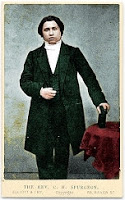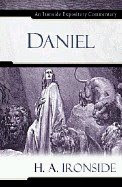 Most people know who Charles Spurgeon is. One site has accumulated several quotes dealing with this exact topic of the essential and non-essential, tertiary versus primary doctrine issue. One particular blog likes to claim that it is all things Spurgeon. In an article written by the administrator of that blog, Phil Johnson, recently wrote at another location this statement:
Most people know who Charles Spurgeon is. One site has accumulated several quotes dealing with this exact topic of the essential and non-essential, tertiary versus primary doctrine issue. One particular blog likes to claim that it is all things Spurgeon. In an article written by the administrator of that blog, Phil Johnson, recently wrote at another location this statement:
It would seem that the only way to be faithful to all the above commands is to have a sound and biblical understanding of how to distinguish between core doctrines and peripheral ones.
Yet, here is just one statement from Spurgeon among many on this subject that absolutely contradicts that quote:
That idea about “non-essentials” is wicked and rebellious. Cast it from you; go without the camp. Be particular in every point. To the tiniest jot and tittle seek to obey your Master’s will, and seek his grace that you may walk in the way of his commandments with a perfect heart.
Harry Ironside (1876-1951) was an American Bible teacher, pastor, and author. He authored more than 60 volumes as well as many pamphlets and articles on Bible subjects. For 18 of his 50 years of ministry (1930-1948), he was pastor of the Moody Memorial Church in Chicago. In 1926 Dallas Theological Seminary asked him to come for seven months a year as a full-time faculty member, but it had to be turned down, although he was visiting lecturer from 1925 to 1943.
 Ironside wrote this in his commentary on Daniel (read at Way of Life):
Ironside wrote this in his commentary on Daniel (read at Way of Life):
I have heard Christians refer to certain precepts in the Scriptures as non-essentials. But we may rest assured there are no non-essentials in our Bibles. ‘The words of the LORD are pure words: as silver tried in a furnace of earth, purified seven times.’ When people talk of non-essentials in regard to anything concerning which God has revealed His mind, it is well to ask, ‘Essential or non-essential to what?’ If it be a question of the soul’s salvation, undoubtedly the one great essential is faith in His blessed Son, whose finished work alone avails to put away sin and procure peace with God. But if it be a question of what is essential to the enjoyment of communion with God–essential to obtaining the Lord’s approval at the judgment-seat of Christ–then it is well to remember that in everything the believer is sanctified to the obedience of Christ.
What do these quotes say about the historicity of this tertiary/primary doctrine view? Come on. Let’s be honest.
How do you see the outworking of these things? Spurgeon went north to Scotland to open the Presbyterian (and firm paedobaptist)Church of John Kennedy of Dingwall.
I always feel that we should tolerate in other Christians what we would not tolerate in ourselves. Obviously there must be a dividing line otherwise the word Christian becomes meaningless and is made to take in arch deceivers like Jehovah Witnesses and Mormons etc., If we create a dividing line into what is tolerable (in other Christians) and what is not, then you automatically create two tier doctrines.
Thanks for the fog horn, to draw attention to keeping things essential. Sometimes it is easy to drift away from the essentials in the Word. I have seen on a number of different Pastor’s List, where there are men from different abominations oh, I mean denominations. They have this as a ‘tag line’ … in essential things, unity; in non-essential things, liberty; and in all things, charity. So thanks to Charles, Harry and Kent (no flattery intended) for keeping this “the essential things” before us.
Two great quotes. Let us indeed never think that one single word God has given to us is non-essential. I need them all.
Kent,
Aren’t your quotes a but deceptive when you consider how those who made them put them into practice? As I am understanding the topic you are discussing, both Spurgeon and Ironside would have seen that some doctrines were not essential to particular levels of fellowship- a fact easily demonstrated by the breadth of fellowship enjoyed by both men.
I’m not sure who you’re targeting who would argue that there are matters of doctrine that don’t matter in even the slightest degree. These are serious matters we deal with. The point is where we determine there must be unanimity on conclusions we reach on particular issues in order to have fellowship, cooperation, and interaction.
Deceptive how Greg. I quoted them. How else could you take it then how they read? What else is the non-essential teaching then having to do with discipline and fellowship?
It isn’t in Scripture and the cooperation, interaction, and fellowship issue is tell-tale because it isn’t in Scripture.
Deceptive in that these men would have considered it necessary to “particular in every point” and “essential to the enjoyment of communion with God”- but would not have argued that doctrinal unanimity was necessary for recognizing others as brothers in Christ with whom you could grant some degree of fellowship- even if you couldn’t be a member of the same church, for instance. They would not have argued that all matters were essential to salvation and fellowship.
Raising the idea in your reply to me that it isn’t in Scripture is beside the point of your original post, too. You weren’t arguing the Biblical basis for these beliefs- instead, you were attempting to substantiate historical support for your position (and the departure from said position represented by Phil J.). Whether or not you or Phil are ultimately right, I don’t think the quotes you provided make your case particularly well. Everyone in this discussion- even Phil- believes it is important to be “particular in every point.”
My family and I are leaving to a family camp at which I am speaking, so I’m not sure how much in the next week and half I’ll be writing, but Greg, I believe we do see here something that these men thought. A big punch of Phil’s article was that we don’t have any to little writing on this historically. However, we have some things, obviously, as seen in these quotes.
We live in a much different era, I believe, of compromise, false doctrine, and practice, but they are talking about the same thing. I do think that we have Scriptural differences, us and who we consider non-separatists like Phil, on this issue. I’ve done four or five articles on this issue over here before Phil posted his piece on this. I don’t think Phil sees it the same way.
I can’t keep going because of time, but ecclesiology is what will result in being consistent on this. Unity on doctrine is in the church. We then fellowship with churches of like faith and practice, so respecting everything God said to do. There isn’t a basis for allowing fellowship for unrepentant disobedience to Scripture.
Thanks Bro Kent for these quotes. It is amazing how much junk is excused away in Christendom, especially when it comes to yoking together with others, and it is certainly good to see others standing for the whole Word of God, not just our preferences or favourite niches.
————-
There isn’t a basis for allowing fellowship for unrepentant disobedience to Scripture.
————-
Kent,
The point is that the professing believing brothers in question may not be disobedient. While there are going to be tighter doctrinal and practical constraints at the local church level (as well there should be), this is not the only place we share fellowship.
Kevin Bauder had some notes thinking through this issue that I found quite helpful.
Kent,
I saw your comment on Bill Hardecker’s site and thought I would visit yours. Great page! Good content. It’s hard to find quality content that is original. I’m glad there are Independent Fundamental Baptists out there still preaching Jesus, the King James Bible, and the old paths! Keep it up! I’ve put a link on my site to yours. If you get a chance, check mine out and put up a link. Thanks!